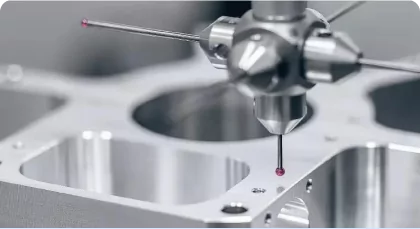High-Precision CNC Prototype Development by Alpha-Mold: Accelerating Innovation with Accuracy
In the competitive world of product development, high-precision CNC prototype development plays a vital role in transforming ideas into reality. Alpha-Mold specializes in delivering ultra-accurate CNC-machined prototypes that meet the strictest industry standards, helping businesses reduce time-to-market and optimize product performance.
Why Choose High-Precision CNC Prototyping?
CNC (Computer Numerical Control) machining is the gold standard for high-accuracy prototype development due to its ability to produce complex geometries with tight tolerances. Key benefits include:
Exceptional dimensional accuracy (±0.005mm) – Ideal for functional testing and fit-checking.
Superior surface finishes – Reduces post-processing needs for end-use parts.
Wide material compatibility – Works with metals (aluminum, steel, titanium) and engineering plastics (ABS, PEEK, nylon).
Fast turnaround – Rapid production of functional prototypes and low-volume batches.
At Alpha-Mold, we leverage advanced 5-axis CNC machining to ensure your prototypes meet exact specifications.
Alpha-Mold’s High-Precision CNC Prototyping Capabilities
1. Multi-Axis CNC Machining (3-Axis to 5-Axis)
Our high-precision CNC machines produce intricate components with complex geometries, ensuring accuracy for industries like aerospace, medical devices, and automotive.
2. Tight Tolerance Control (±0.005mm)
We use precision metrology tools (CMM, optical comparators) to verify every dimension, guaranteeing compliance with your design requirements.
3. Rapid Prototyping & Low-Volume Production
From single prototypes to small-batch manufacturing, we support fast iterations and pre-production validation.
4. Material Expertise
Metals: Aluminum 6061, Stainless Steel 303/304, Titanium
Plastics: ABS, Polycarbonate, POM (Delrin), PEEK
Specialty Alloys & Composites
FAQ: High-Precision CNC Prototyping Explained
Q1: What industries benefit most from high-precision CNC prototypes?
A: Medical devices, aerospace, automotive, and electronics rely on CNC prototypes for functional testing and regulatory compliance.
Q2: How does CNC machining compare to 3D printing for prototypes?
A: CNC offers better strength, tighter tolerances, and smoother finishes than most 3D printing methods, making it ideal for end-use parts.
Q3: What file formats do you accept for CNC machining?
A: We work with STEP, IGES, STL, and native CAD files (SolidWorks, AutoCAD).
Q4: Can you machine prototypes with internal channels or threads?
A: Yes! Our multi-axis CNC machines can produce complex internal features, undercuts, and threaded holes.
Partner with Alpha-Mold for Precision Prototyping
Whether you need a single high-precision prototype or low-volume CNC-machined parts, Alpha-Mold delivers unmatched accuracy and speed. Contact us today:
Email: info@alpha-mold.com
Website: www.alpha-mold.com
Hot tag: High-precision CNC prototype development, CNC machining services, rapid CNC prototyping, tight tolerance machining, 5-axis CNC prototyping, functional prototype manufacturing.








